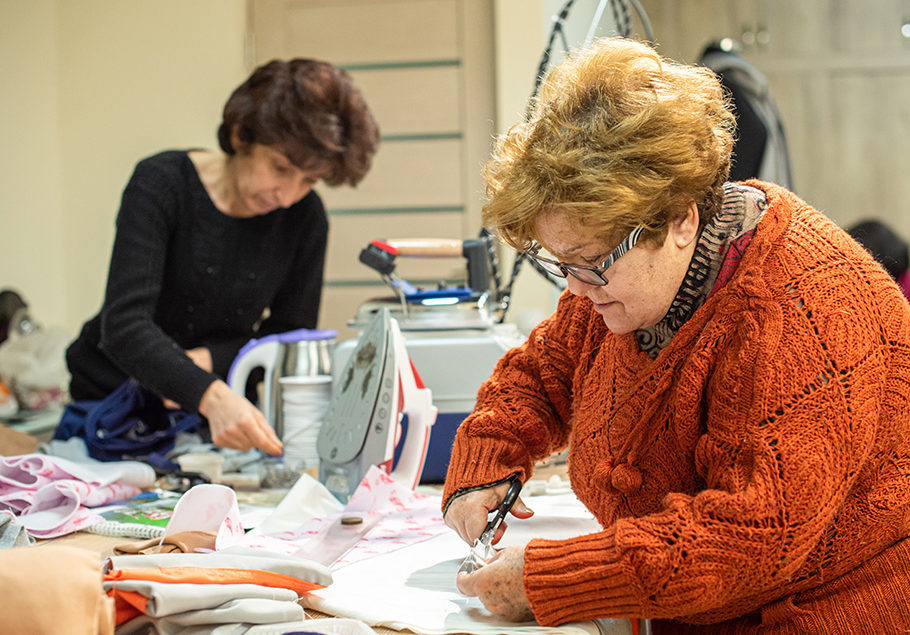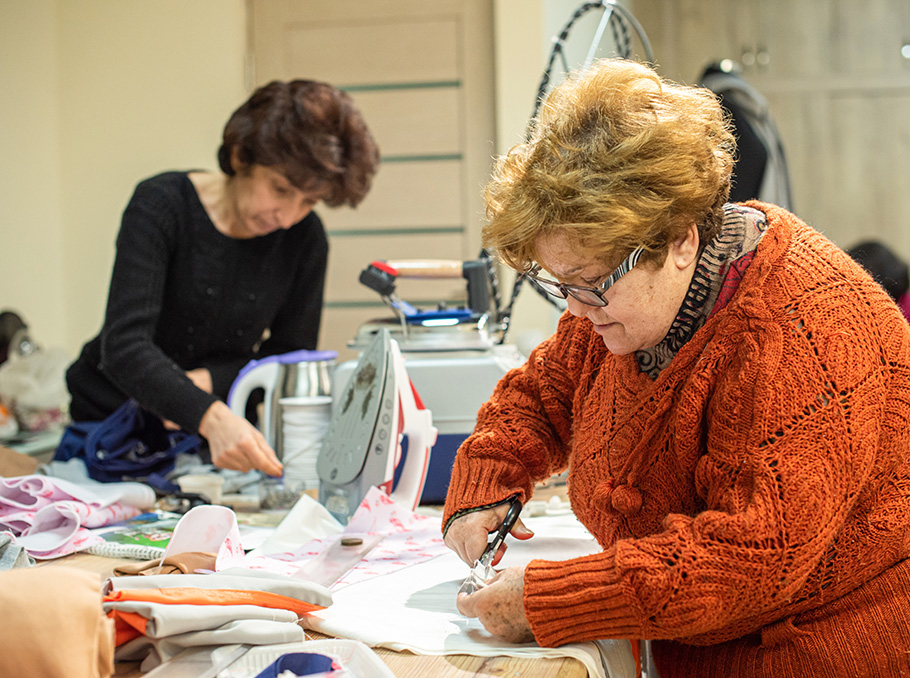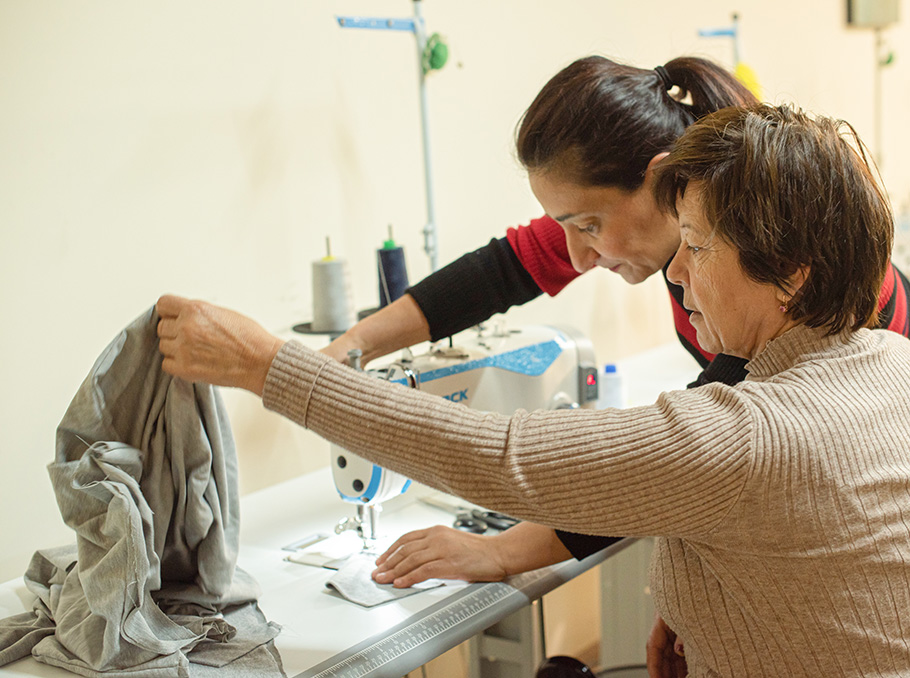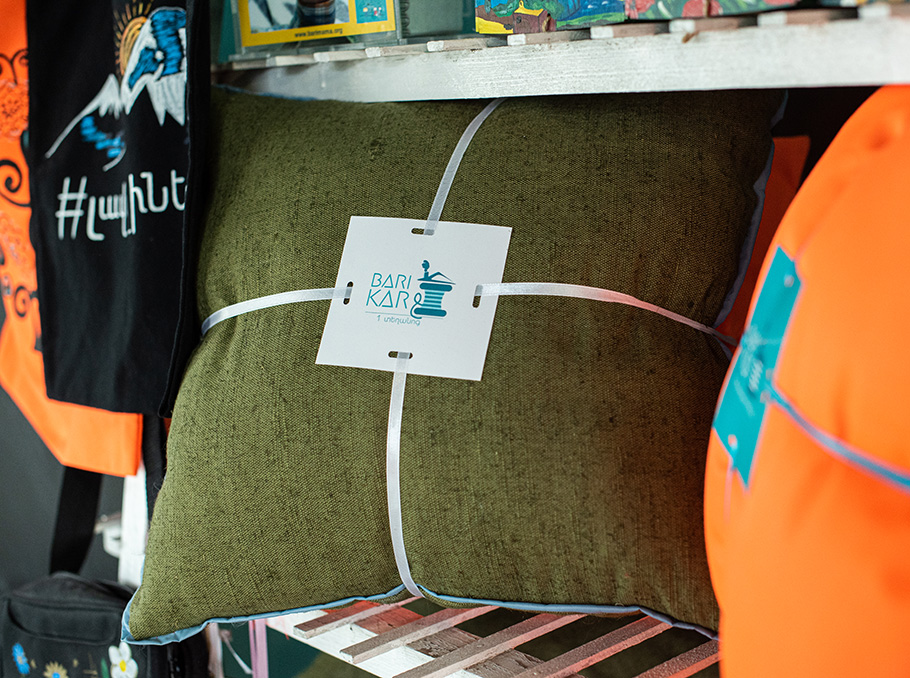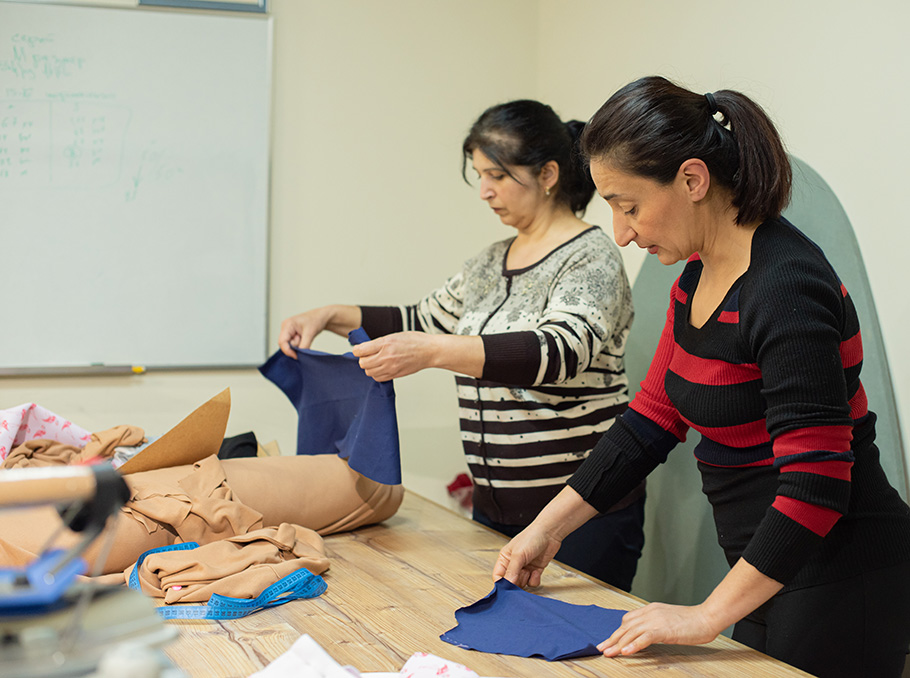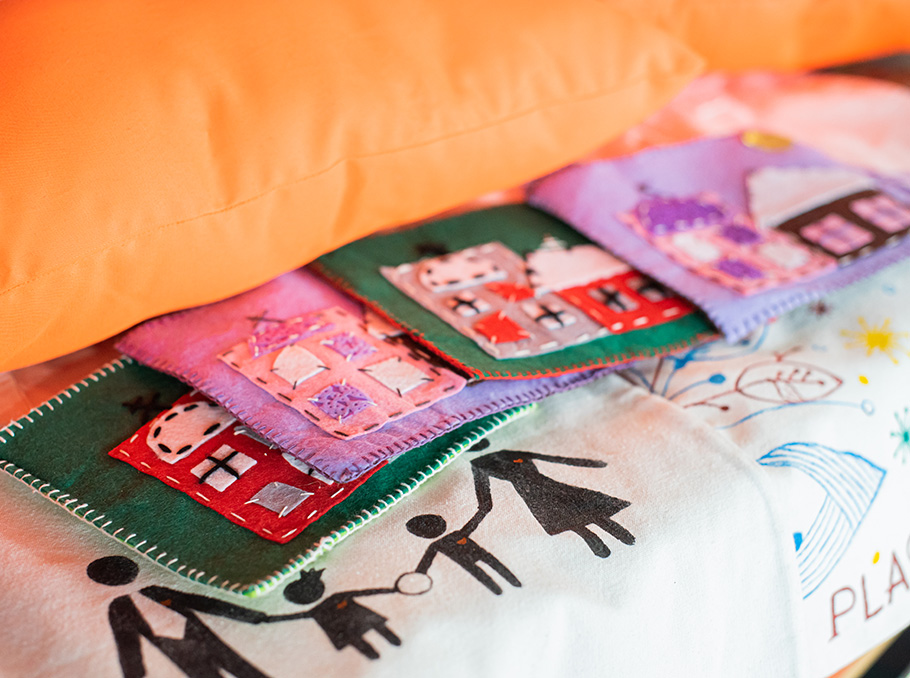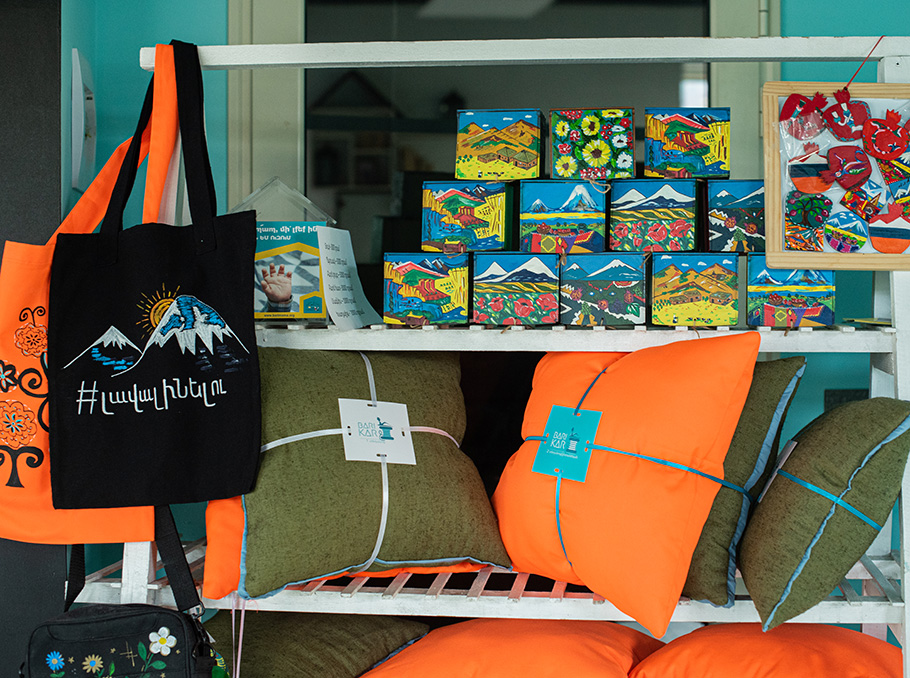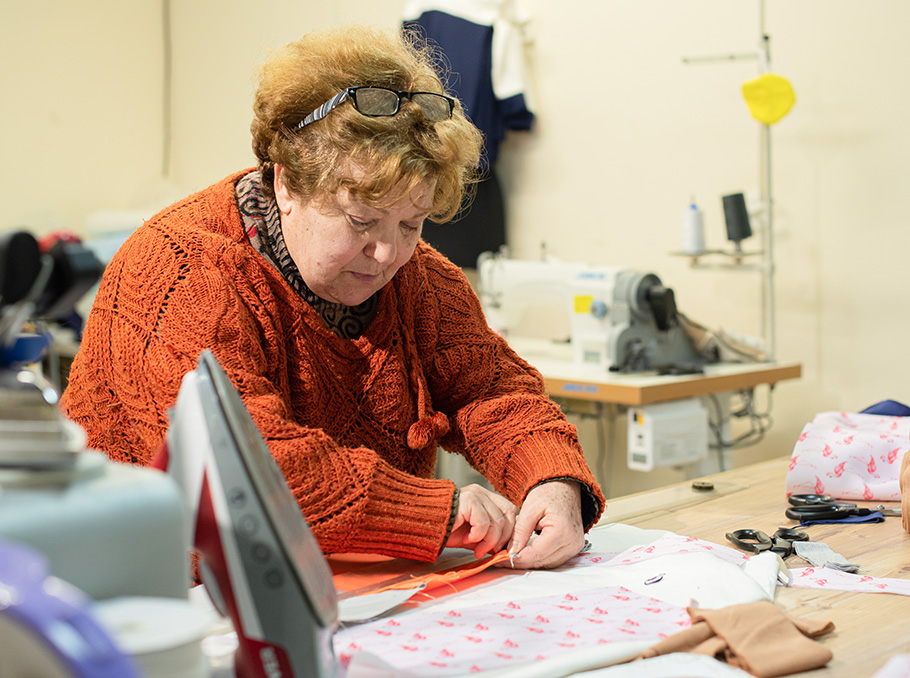Artsakh women and ”Bari kar” relieving the pain of loss
At the beginning of the year, ”Bari Mama” Charitable NGO, together with its supporters and the ”Aurora” Foundation, set up a handicraft workshop called ”Bari Kar”, where women displaced from Artsakh study and then work.
Mediamax visited “Bari Tnak” , where “a piece of kindness” is created by the tireless work of the people of Artsakh.
Your own example as an inspiration.
The sound of sewing machines is not silent on the first floor of “Bari Tnak” . The work is in full swing. 12 women from Artsakh, who study and work in sewing, gathered here within the framework of the “Bari Kar” initiative. They are mainly from Hadrut, as they say, “everyone is a kindred soul.”
Marine Grigoryan teaches sewing secrets to Artsakh women, constantly inspiring them with her own example. Women approach her and ask questions. Marine is always willing to help, but sometimes the biggest help is to do it on their own.
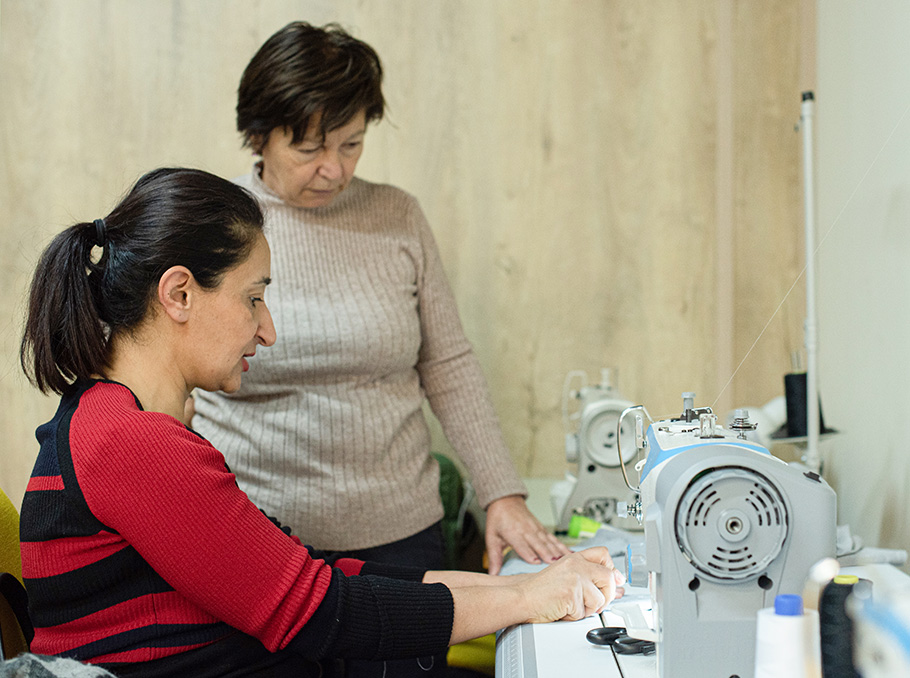
“Do it yourself, today I am by your side, not tomorrow,” says Marine, remembering the words of her master. She tells how, after two months of studying, she received an order for a wedding dress and succeeded on her own, because her master always urged her to rely only on herself. Marine teaches the same approach to the women of Artsakh.
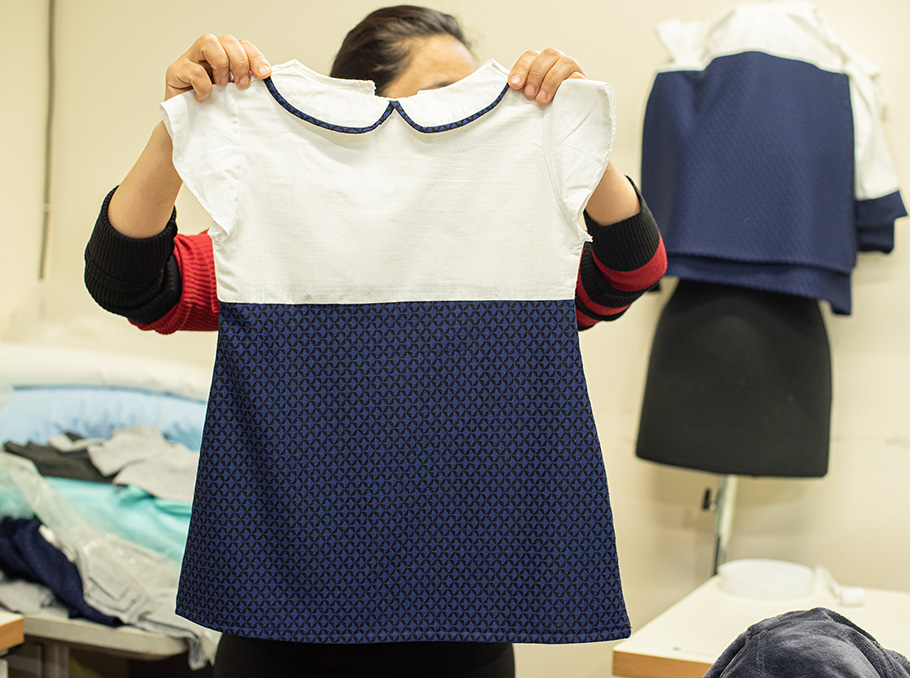
“I have a child with a disability; life has forced me to learn sewing. I used to be very far from the seam, very much, but now if the sewing machines in my house do not work, I go crazy ( smiles, author ). I started doing this so that I could take my baby to physiotherapy during the day and work in the evenings. With the help of the “Armenian Mothers” charity NGO, I became proficient in this field and started teaching other mothers, and after the war, women from Hadrut. Some of them are still studying at the moment, others are already working,”says Marine Grigoryan.
Our future is so vague…
In “Bari Kar” women can sew everything: bedding, dresses, skirts, hoodies, pillows, eco bags. Sleeping bags and blankets were also sewn and sent to the border.
Gohar Altunyan, one of the employees of the workshop, agrees to talk only on one condition – during that time the work should not be interrupted.
Continuing to shape the piece, Gohar says that she was born and lived in the village of Mets Tagher in the Hadrut region. She worked as a teacher in a kindergarten for 25 years. The family moved to Yerevan on October 7, when the situation was already hopeless. They settled in the house of an acquaintance, where 16 people with 4 families lived for two months. Then they moved to Sis village of Masis. “My daughter-in-law told me about ”Bari Kar”. There was only one place left, I was accepted. I have never experienced sewing before, except for sewing at home. Marine taught and now I work. This job helps provide for my family to some extent. The most important thing is that we are busy, we are distracted from these hard worries,”says Gohar.
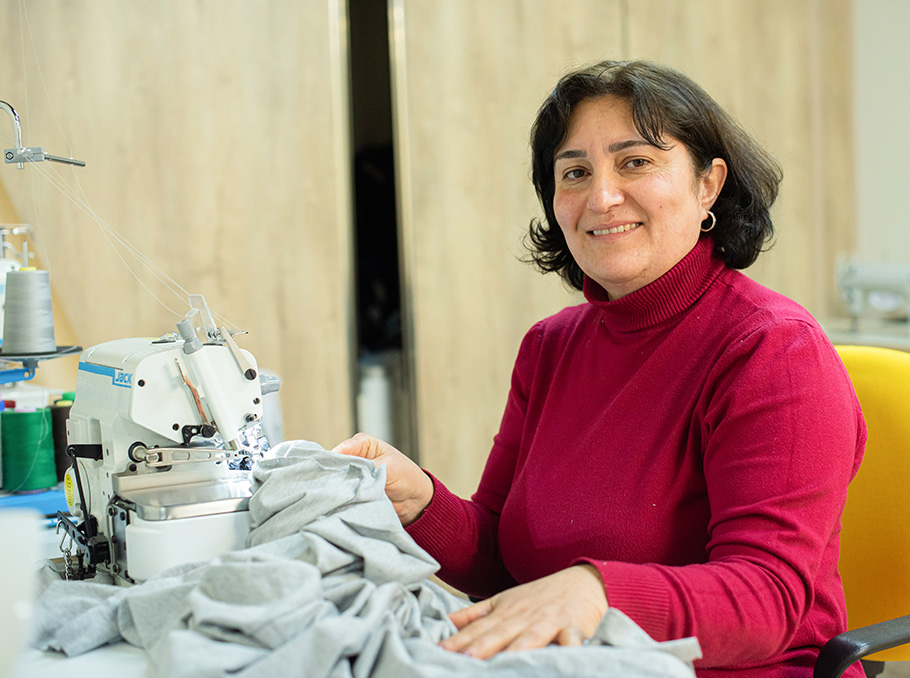
According to her, they really want to return, but security issues are very worrying.
“I really want to go to my homeland, but I do not know where. Our future is so vague! You know for sure that the people of Hadrut have started a movement, have been organizing marches at various embassies for a long time, applying to international organizations, sending letters to our ministers. I also join that movement. If our issue is not resolved, we will have to apply for asylum in a more civilized country with refugee status, so that we can keep our Hadrut, our dialect and customs, even in another country.
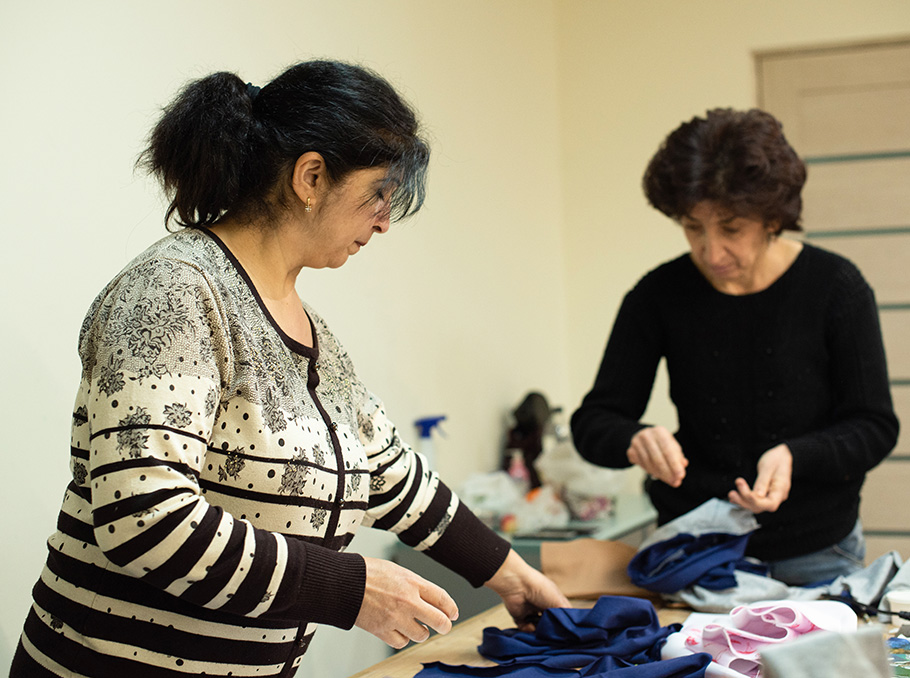
If the Turks attack again, if another war breaks out, will we be able to continue living and working, both mentally and physically? “I want to go to my land, but I am afraid there is no guarantee of security,” said Gohar.
“Mom, you will take care of my children”.
Mrs. Melania, who is Hadrut’s bride but lives with her family in Yerevan, also works here with the women of Hadrut. The husband is from the village of Tumi in the Hadrut region. After the start of the war, their eldest son, 30-year-old Nerses, volunteered to defend his homeland and never returned.
When talking about her son, Mrs. Melania could not hold back her tears, but with tears flowing from her eyes with boundless sorrow and pride.
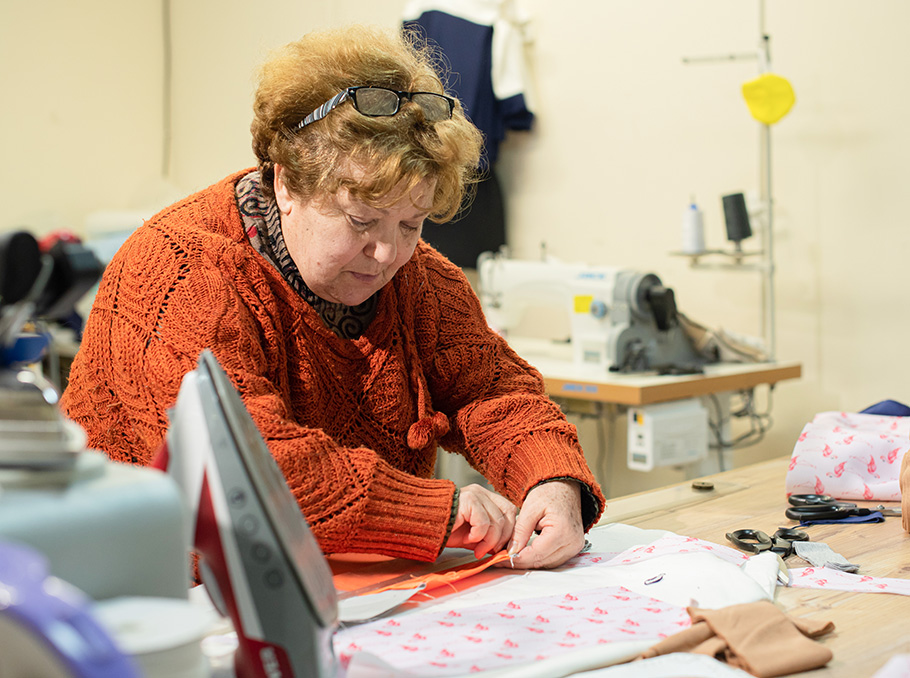
“He has two children, they live in Sisian. My eldest grandson is in the second grade, and my youngest is still 4 years old. Nerses was a miracle, his hands were golden and his head was a computer. Ever since he was a child, he used to fix everything that went wrong at home. He controlled everything at the border in the same way. They told that one night they looked for Nerses, but did not find him. In the morning he returned with two turkish tanks. He tied them together, gave them a hug and drove them away. “Once he made a mistake that it was not allowed, he went from position to position, so that he could set up a side-by-side radio so that they could communicate with the center,” says Mrs. Melania, and her loving eyes smile with tears.
Days before the incident, the son said while talking to his mother. “Mom, you will take care of my children.” Even then she did not understand what her son meant, but those words were etched in Mrs. Melania’s heart and now they are forced to live for the sake of her grandchildren, youngest son, husband, sister, daughter-in-law and Nerses. She says that by asking God for patience we must be able to endure, we must overcome the pain with faith.
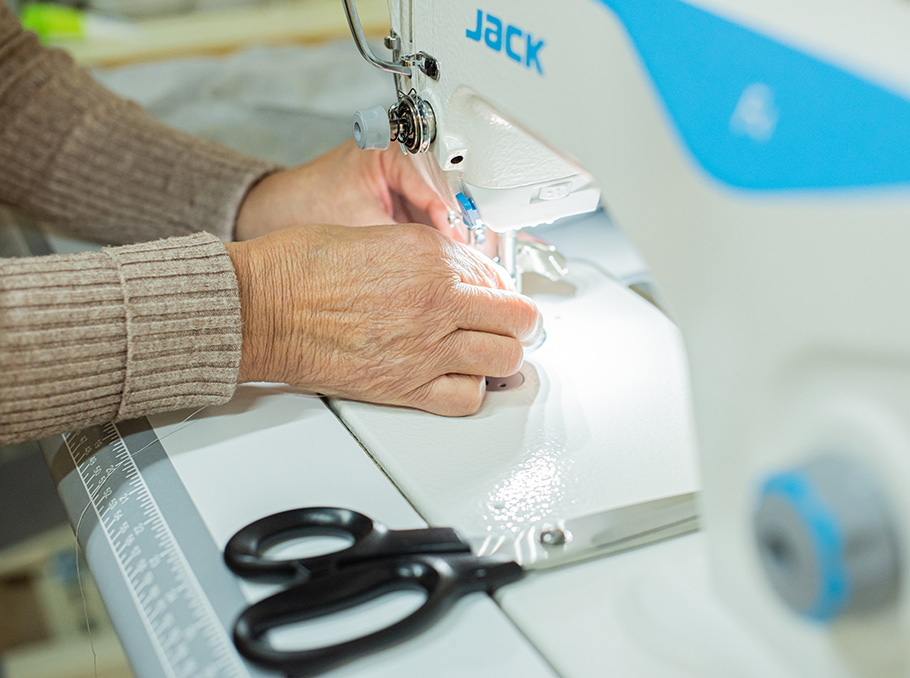
“May the will of God be done. None should complain. If my son has decided to go and defend his father’s land, his children, his mother, then my son is right. He showed through his years that he had received the right upbringing. I think, then I did not live wrong that I gave such a child to the homeland and the people. Mom was so small, but my son was 2 meters tall. He used to bend over and put his head on my shoulder, I loved like a child … ”.
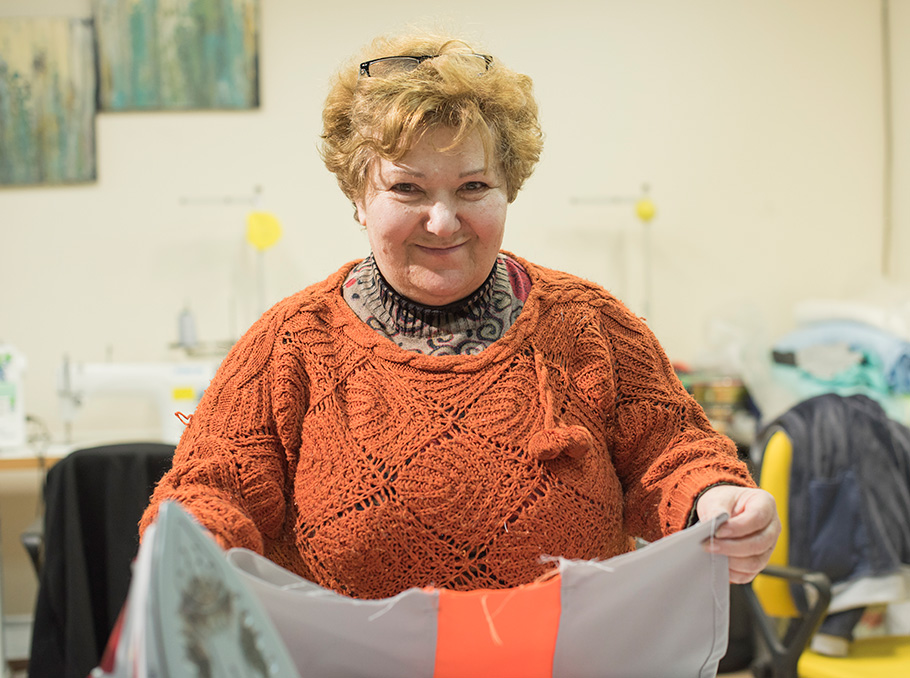
“Bari Kar” helps Mrs. Melania to overcome the pain of loss. She says that the most important thing is the atmosphere around the person, and here in the “Bari tnak” she is surrounded by wonderful people who help her get out of stress. “It’s difficult, but it works,” says Ms. Melania.
Artsakh seam accepts orders
“Bari Mama” charitable NGO supported the displaced people of Artsakh during the war. It is necessary to create a livelihood for them after the ceasefire.
We decided to create “Bari Kar”, for which we started an online fundraiser. The ”Aurora” Foundation joined us and doubled the amount raised. We were able to create 12 workplaces. We have chosen women by spreading the announcement. Unfortunately, there were not many applicants, because what we were afraid of from the beginning happened. People learned that they need constant support. “We received only 20 applications after a long period of joint distribution with the foundation,” said Marine Adulyan, founder and president of ”Bari Mama” NGO.
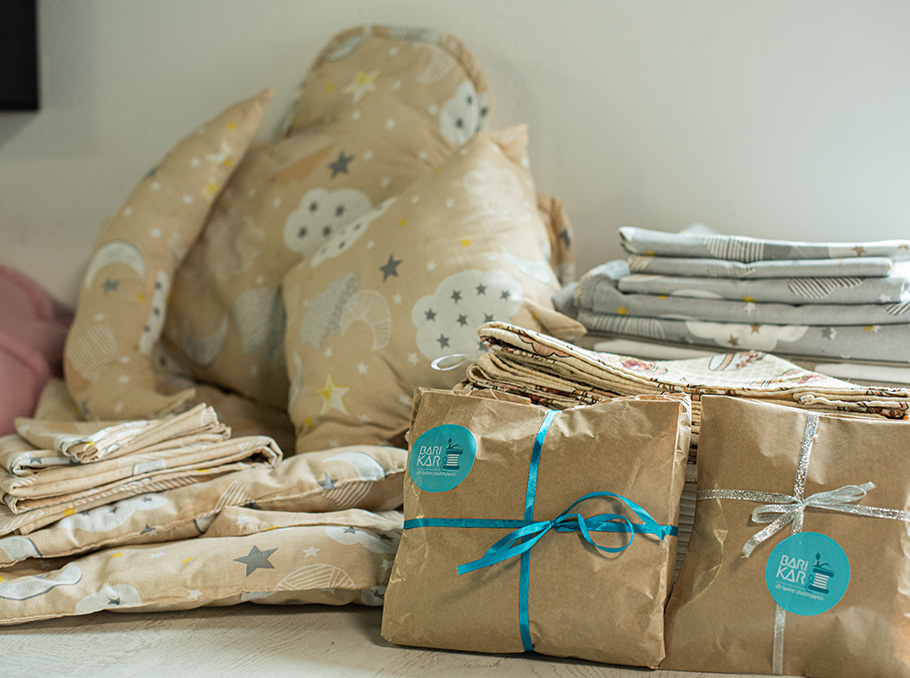
Clothing prices are available at ”Bari Kar”, as one of the main goals of the initiative is to get Armenian clothes that will become an alternative to Turkish. The main materials they try to import from Russia (not Turkey) or Iran cause some difficulties in the production of clothes. They also use the local French pieces.
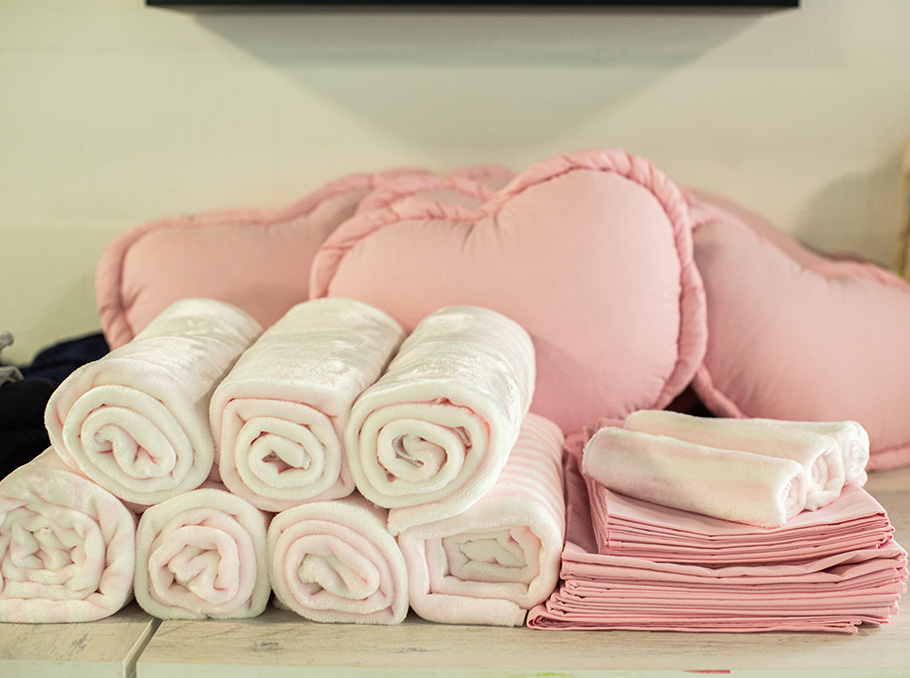
“We are accepting orders now. We have also started negotiating with stores. We will expand the sale when we have the final quality. I think we will be able to have regulated production in a month. We plan to open our own store in a year,”says Marine Adulyan.
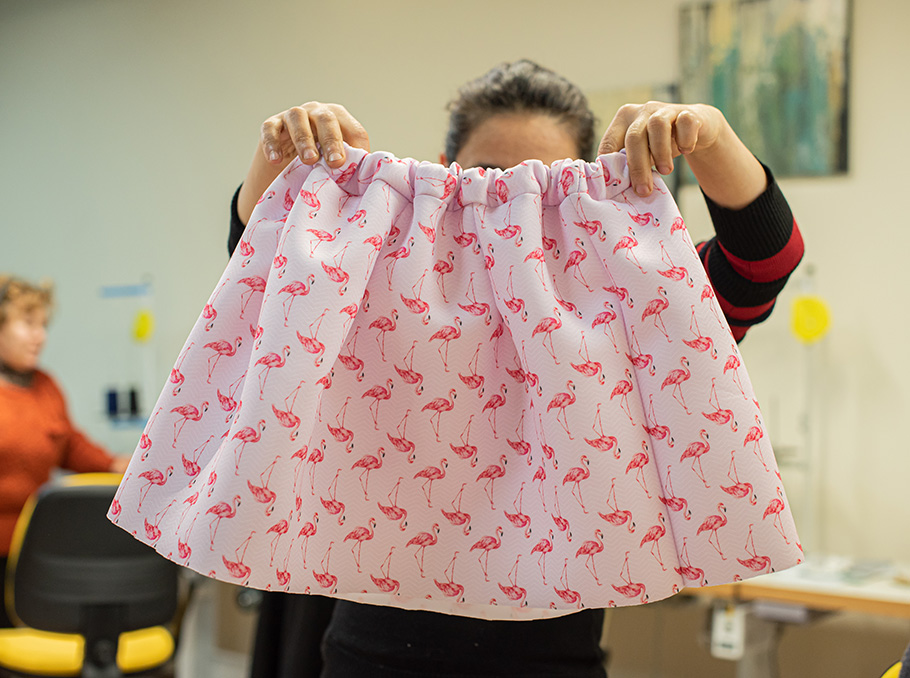
At the moment, they are looking for opportunities to expand the initiative. They want to have branches in Sisian and Stepanakert. They are in touch with the Minister of Labor, Social Affairs and Housing of the Artsakh Republic Mane Tandilyan, according to whom the people of Artsakh are constantly applying for jobs.
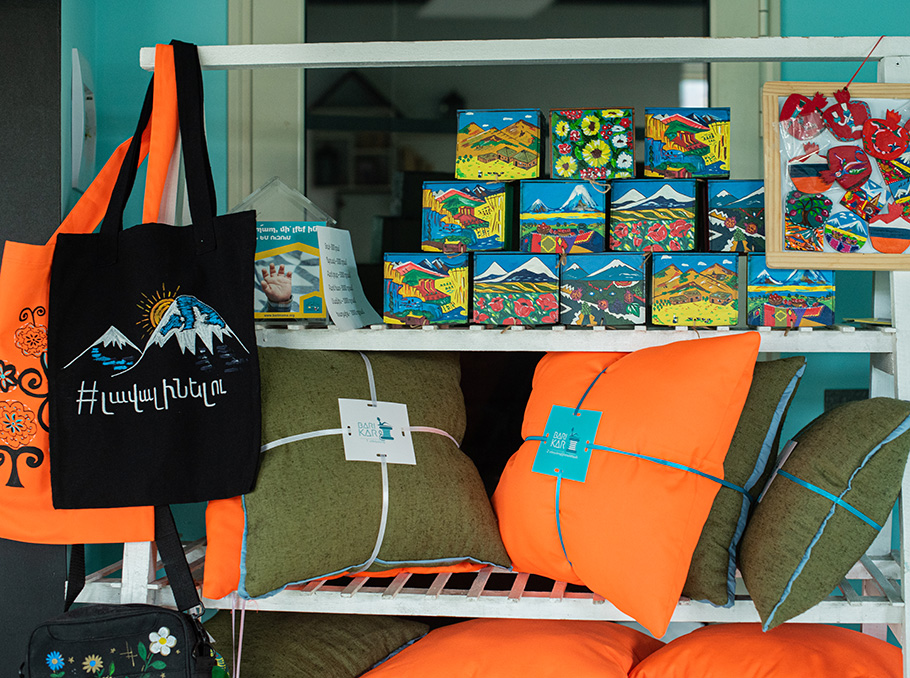
If there are people, organizations that would like to support the expansion of the initiative, “Bari Mama” NGO is open for suggestions.
Source: https://mediamax.am/am/news/special-report/42585/?fbclid=IwAR2_makd0G0G7Zyne07ggblN2fVIS_tXN5wto6Hnhv3NAELJxPY4qHFMpso



